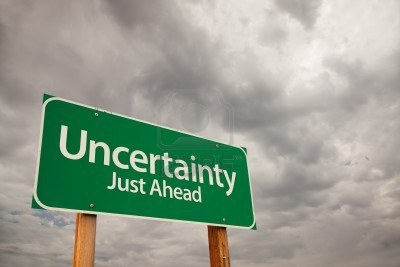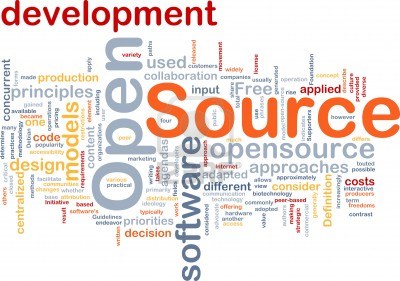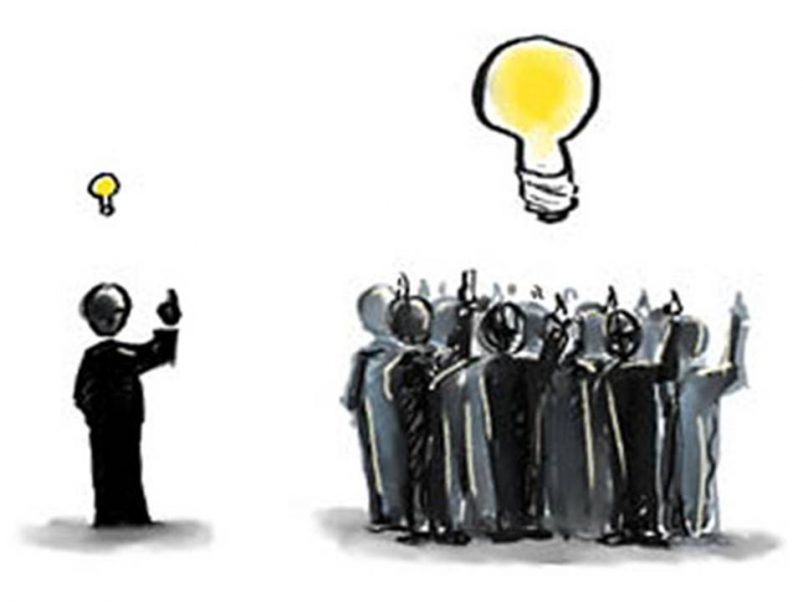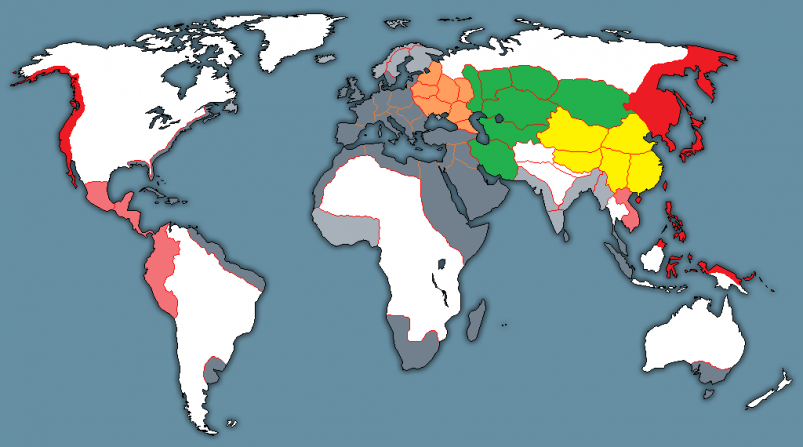By Drew Bush More than 1,450 individuals collectively generated 2,010 ideas, comments and questions for the Canadian Government on its Action Plan for Open Government 2.0. But one researcher with The Programmable City project who studies open data and open government in Canada feels these numbers miss the real story. The process leading up to the “What We Heard” report, … Read More
Spotlight on Recent Publications: Interrogating the Nature of Geosocial Data with Stéphane Roche
By Drew Bush In two articles published this January, Geothink researcher Stéphane Roche and his doctoral student Teriitutea Quesnot argue that not all geosocial data is equivalent, and that better data on the social significance of a landmark could greatly enhance our understanding of human wayfinding behavior. A Professor of Geomatics at University of Laval, Roche’s research over the past … Read More
#Geothink Chat Transcript, 20 January 2015
Twitter Chat on #IntellectualProperty, #copyright, and #geodata, hosted by Cheryl Power, PhD student at UOttawa’s Faculty of Law. Cross-posted from Mapping Mashups. @geothinkca Jan 20, 2:59pm Welcome all to our #geothink chat, hosted by @cheryldpower on #IntellectualProperty, #copyright, and #geodata! Thanks for joining us! @cheryldpower Jan 20, 3:00pm Good evening everyone, Cheryl speaking – Let’s hear from the audience who … Read More
CODE Hackathon Set to Kick-Off as New Report finds the World's Governments Slow to Open Governmental Data
By Drew Bush In the first weeks of the New Year, two important news items for the Geothink audience made headlines. In Toronto, the Canadian federal government got ready to kick-off its second annual multi-city Canadian Open Data Experience (CODE) while the World Wide Web Foundation ranked the United States 2nd and Canada 7th for openness of governmental data in … Read More
Geothink Newsletter Issue 5
This Geothink newsletter brings an update for the end of the 2014 year. Inside you’ll find an interview with our partner in the City of Kitchener, highlights from our research team at the University of British Columbia Okanagan, information about two of our Rapid Response Think Tank projects on Open Data Implementation and Geospatial Metadata Standards, and more! We are … Read More
Canada Action Plan on Open Government 2.0: Much Still To Do?
By Drew Bush Introduction For the savvy traveller headed over Canada’s border this holiday season, Canada’s Action Plan on Open Government 2.0 holds promise. A visit to the site in December 2014 yielded a multi-media list of steps to follow when travelling abroad and even an iOS “Travel Smart” application. Drafted after a June 2013 G8 Summit, Canada’s plan results … Read More
Crosspost: Ryerson journalism and the Neptis Foundation partner to teach students data journalism
By Prajakta Dhopade I stared blankly at the rows upon rows of transportation statistics on my computer screen. My heart thudded in my chest, my eyes darted to my classmates’ faces. Did they get it? The numbers in the intimidating Excel spreadsheet I was scrolling through didn’t make much sense to me. I thought I’d left math class behind when … Read More
Geothink Newsletter Issue 4
We are happy to announce the publication Geothink’s 4th newsletter, in a new and improved layout. Inside, you will find updates from the AGM, interviews with the City of Toronto, The Neptis Foundation, and the Canadian Internet Policy and Public Interest Clinic, a list of new Geothink publications, and introductions to three Geothink students. If you wish to contribute, do … Read More
Civic Hackathons: Innovation, Procurement, or Civic Engagement?
By Peter Johnson I’ve recently published a jointly-authored viewpoint piece with Dr. Pamela Robinson from Ryerson University in Review of Policy Research. Titled ‘Civic Hackathons: Innovation, Procurement, or Civic Engagement?‘, we take a critical look at the recent phenomenon of civic hackathons – time limited contests typically run by governments designed to promote use of open data resources, and potentially solve … Read More
Privacy Challenges in Open Government
By Teresa Scassa The public-oriented goals of the open government movement promise increased transparency and accountability of governments, enhanced citizen engagement and participation, improved service delivery, economic development and the stimulation of innovation. In part, these goals are to be achieved by making more and more government information public in reusable formats and under open licences. The Canadian federal government has … Read More
Is Raw Data Bad For You? Open Data Obligations to Government.
By: Leah Cooke, Stephanie Piper, Alana Kingdon, and Peter Johnson *This blog post was written collaboratively during the springtime Geothink meetup between Ryerson University and University of Waterloo students + faculty. The goals of this meetup were to discuss current and future issues related to Geothink research themes. What strings are attached to governments that provide open data to citizens? … Read More
Paper Spotlight: "Enabling Access and Reuse of Public Sector Information in Canada" by Elizabeth Judge
Enabling Access and Reuse of Public Sector Information in Canada: Crown Commons Licenses, Copyright, and Public Sector Information Elizabeth Judge University of Ottawa – Common Law Section October 14, 2010 http://papers.ssrn.com/sol3/papers.cfm?abstract_id=1956549 Abstract: Although the proactive disclosure of public sector information has been called a “basic right of citizens” and a “public right,” Canada has not yet implemented a national strategy … Read More
Geothink 2nd Annual General Meeting – Ottawa, ON, Canada – 2014
Geothink is happy to announce it’s second annual general meeting (AGM) June 11-13th being hosted at the University of Ottawa. Agenda for 2nd Annual General Meeting June 11 – 13, 2014 (Ottawa, Canada) Position papers related to talks available on Geothink.ca. —– Wednesday, 11 June 2014 19h00Get together for a drink/dinner at The Black Tomato (drinks sponsored by IBM) (near … Read More
Re-identification Risk and Proactive Disclosure of Data for Open Government: Lessons from the Supreme Court of Canada?
By Teresa Scassa One of the challenges with the proactive disclosure of government data, and with open data more generally, is the obligation that governments have to not disclose personal information. This challenge is made more acute by the fact that the definition of “personal information” is, generally speaking, “information about an identifiable individual”. Courts in Canada have said that … Read More
Decision-Making with Uncertain Data
Professor Scott Bell Director, The Spatial Initiative University of Saskatchewan 117 Science Place, Saskatoon, SK S7N 3C8 Governments have long provided their citizens with high quality data through centralized services. Generally, these are collected as a population census with an additional and more detailed sampled survey. In Canada, the former is known as the short form census and the latter … Read More
Research Area: Copyright and Privacy Law Issues Arising from the Geoweb
Professor Elizabeth Judge, University of Ottawa, Faculty of Law Year 1: “Implied License for Downstream Uses of Copyrighted Information on the Geoweb” *Abstract:* How does copyright law apply to material individuals submit to government-operated websites, such as original compilations of geographic data, surveys, or maps? Authors of copyrightable works are the first owners of copyright and have a bundle of … Read More
Crowdsourcing Ventures in the Canadian Public Sector
Crowdsourcing Ventures in the Canadian Public Sector Daren C. Brabham University of Southern California As crowdsourcing ventures become more widespread in the Canadian public sector and abroad, many questions arise as to how these ventures come into being from an institutional standpoint; what motivates participants to engage these ventures; how citizens perceive these ventures as extensions of democratic governance; and … Read More
Open Everything
Theme 4: Open Everything Hello, I am Dr. Claus Rinner, an Associate Professor in the Department of Geography and program director of the Master of Spatial Analysis (MSA) at Ryerson University. My research focuses on the decision support function of maps and geographic information systems (GIS), and the underlying concepts of cartography, geovisualization, public participation, and multi-criteria decision analysis. I … Read More
Privacy Challenges in Open Government
Prof. Teresa Scassa is interested in Privacy Challenges in Open Government and welcomes your input and participation. The open government movement promises greater access to government information and proactive disclosure of open data. If it unfolds as promised, a growing volume of information will soon flow from governments to individuals and to the private sector. Such information flows will be … Read More
Mobile Feedback Applications for Base Map Editing
If governments wish to maximize citizen contributions on issues as varied as fixing maps, reporting potholes and commenting on social housing, they likely need easy-to-use tools for citizens to do so. One answer could be on mobile phones. Tool-building is more than a technical issue. Mobile devices have an increasingly central role in our daily activities; they become intermediaries for … Read More






